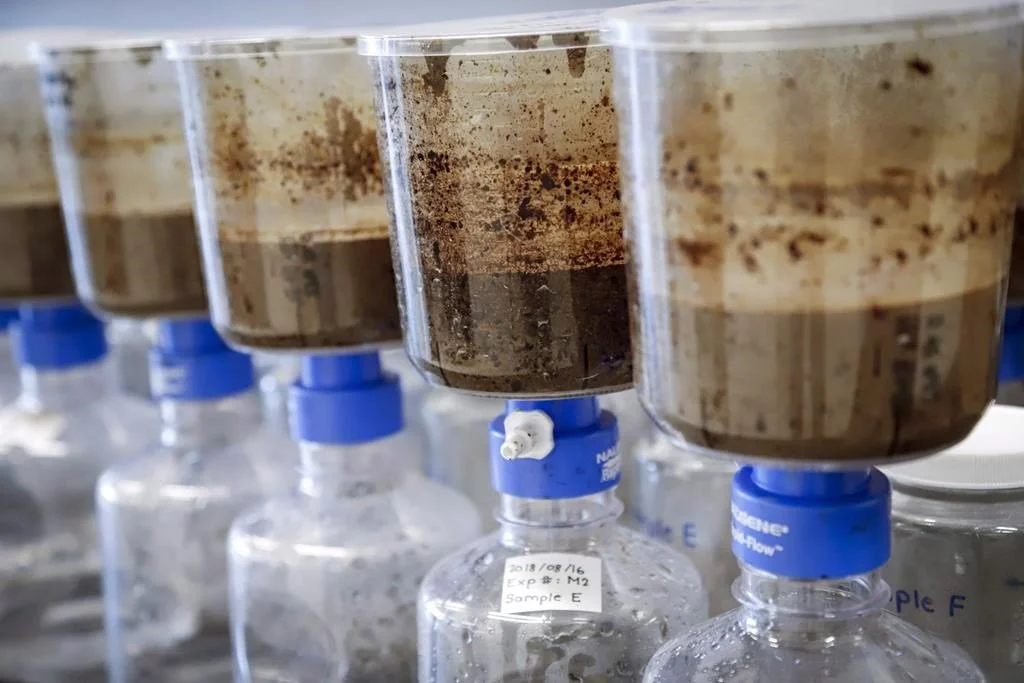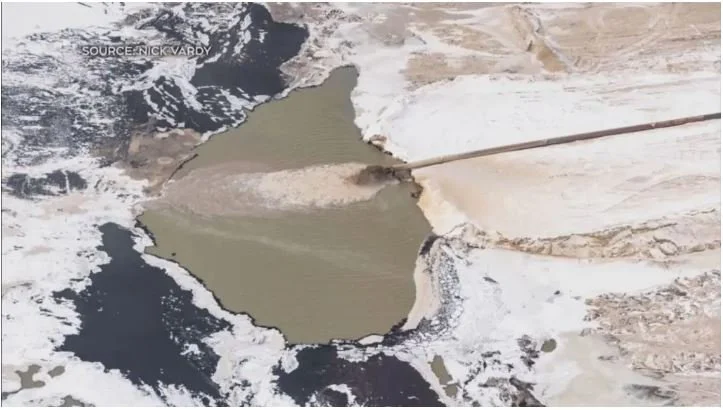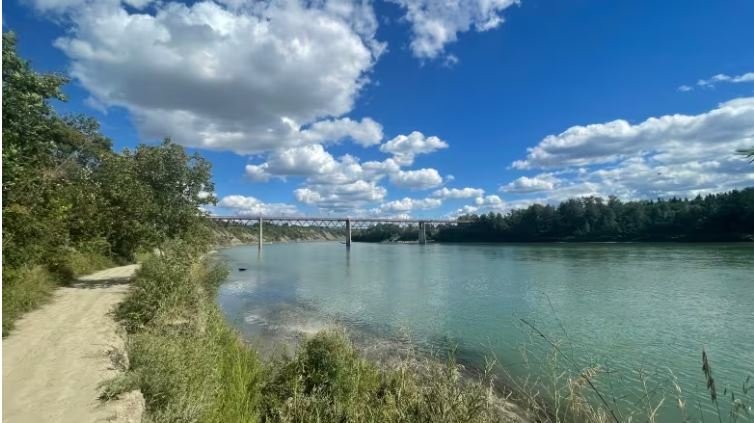The chief of the Athabasca Chipewyan First Nation is voicing his concern over yet another incident at the Kearl oilsands facility, located about a 90-minute drive north of Fort McMurray. In a statement issued Thursday, Chief Allan Adam said the Nov. 13 incident, involving water, has “once again impacted the environment on our traditional territories.”
Another spill at Kearl mine reported in northern Alberta
There has been another spill at Imperial Oil's Kearl facility in northern Alberta, the Alberta Energy Regulator (AER) has confirmed. "On Nov. 13, Imperial Oil reported to EDGE that there had been a release of water with Total Suspended Solids (TSS) more than their approved provincial regulatory limit from a sedimentation pond at their Kearl site," Teresa Broughton of AER wrote in an email to CTV News Edmonton. "Initial reports indicated approximately 670m3 of water was released into the Muskeg River."
Imperial Oil faces more water problems at Kearl oilsands mine, regulator warns
The Alberta Energy Regulator has warned Imperial Oil about more wastewater problems at its Kearl oilsands mine in northern Alberta. The regulator has issued a notice of non-compliance to the company after chemicals associated with oilsands tailings were found at an off-site well at levels that exceed provincial guidelines.
Canada opens formal investigation into Imperial's oilsands tailings leak in northern Alberta
Federal environmental authorities have launched a formal investigation into a tailings leak at Imperial Oil's Kearl oilsands mine in northern Alberta. Environment and Climate Change Canada (ECCC) announced Thursday it is investigating a suspected contravention of the Fisheries Act, which prohibits the "deposit of a deleterious substance into water frequented by fish," or any place where such substances could enter fish-bearing water.
Canada oil sands leak heightens First Nations' calls to clean up tailings
In early February, Chief Allan Adam of the Athabasca Chipewyan First Nation in northern Alberta started fielding calls from community members after the provincial regulator revealed toxic wastewater had been leaking for months from a tailings pond at Imperial Oil's Kearl oil sands mine. Many in the community hunt and fish downstream of Canada's huge bitumen mines, and wanted to know if the game meat in their freezers was safe to eat.
Province waited a month to declare emergency response to northern Alberta oilsands releases: document
The Alberta government waited a month before calling an emergency response to one of the biggest releases of oilsands tailings in the province's history, a leaked document shows. The document, obtained by The Canadian Press, shows the province didn't initiate an emergency response until after First Nations chiefs in the area went public about how they were informed of the releases from Imperial Oil's Kearl mine, about 70 kilometres north of Fort McMurray, Alta.
Feds to provide bottled water, mental health services to First Nations dealing with tailings pond leak
The federal government is providing bottled water and mental health services to First Nations struggling to deal with a spill from a tar sands tailings pond that went unreported for months in northern Alberta. “They’re devastated and their communities are devastated,” Indigenous Services Canada Minister Patty Hajdu said at a press conference in Ottawa on Monday. “They’re afraid that the water is contaminated.
How the health of a river is influenced by what's happening on land
For some residents of northern Alberta and Saskatchewan, the North Saskatchewan River is nothing more than a flowing body of water that starts at the Saskatchewan Glacier in Banff National Park and winds its way northeast. But it's much more than that. The river is a part of a bigger network of streams and channels that feed into it on its path through the Prairies. We're talking about a watershed — an area of land that drains into a water body.
Conservation group opposes oilsands mining project on northern Alberta wetland
An Alberta conservation group is raising concerns about the potential for environmental damage from an approved oilsands mining operation on an important wetland in northern Alberta. The Alberta Energy Regulator approved Suncor's plan for work in the McClelland Lake Wetland Complex last year. The project is part of the company's current Fort Hills oilsands operation.
UN monitors thrust into debate over what to do with 1.4 trillion litres of oilsands wastewater
When the Mikisew Cree First Nation grew tired of warning elected officials that the Peace-Athabasca Delta in northern Alberta was slowly drying up, they went international in a bid to find help. That’s how a group of United Nations monitors came to be seated in a community hall in the remote community of Fort Chipewyan last weekend, going over the nation’s list of concerns for Wood Buffalo National Park, the site of one of the largest freshwater deltas in the world and and home to endangered whooping cranes and the continent’s largest wild bison population.
Releasing oilsands tailings into river is only one among several options: Guilbeault
Releasing treated oilsands tailings into the environment isn't the only solution being considered to clean up the massive toxic ponds in northern Alberta, federal Environment Minister Steven Guilbeault says. Guilbeault said Wednesday that even though his government is developing regulations on how the tailings could be drained into the Athabasca River, other solutions are under review.
Hundreds flee homes in northern Alberta due to flooding
Residents in the northern Alberta community of Chateh, west of High Level, could be out of their homes for several months after flooding forced them to flee on Sunday and Monday. Some 1,100 people left the community on the Dene Tha' First Nation as water in the Sousa Creeks, basin and surrounding waterways continued to rise in the previous few days. Chateh is about 850 kilometres northwest of Edmonton.













